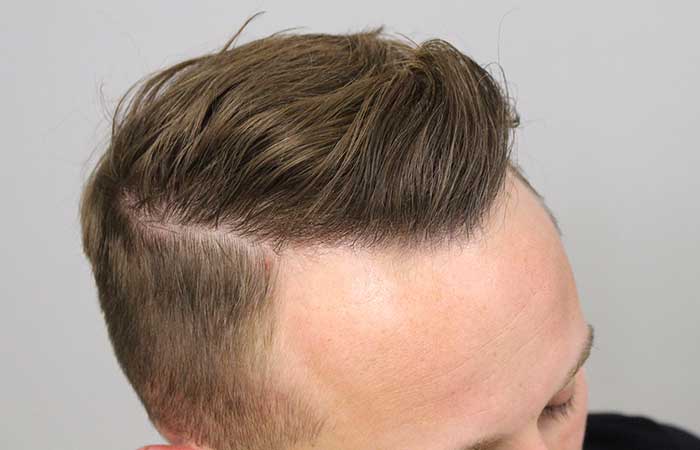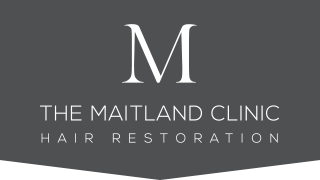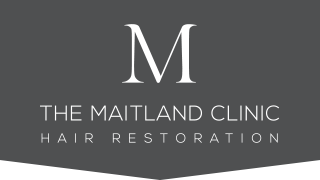Hair loss shampoo: a comprehensive overview
29th August 2024

Hair loss affects millions of people across the UK and beyond, with both men and women seeking effective solutions to either prevent or manage it.
One of the first treatments often considered is the use of specialised hair loss shampoo or hair loss conditioner. But do these products actually work? And if so, what ingredients should you be looking for? In this blog, we’ll explore how hair loss shampoos work, and what key ingredients you should consider when selecting the right product for your hair care routine.
Understanding hair loss
Hair loss can be triggered by a variety of factors including genetics, hormonal imbalances, stress, environmental damage, medication, and nutritional deficiencies. The most common type of hair loss is androgenetic alopecia, which is hereditary (often referred to as male or female pattern hair loss) .
Other common forms of hair loss include:
- Alopecia areata: an autoimmune condition where the body attacks hair follicles
- Telogen effluvium: a shedding condition where the hair growth cycle is disturbed due due a trigger such as childbirth, stress, illness, or weight loss.
- Traction alopecia: which results from stress or shock to the hair follicles, for instance, through tight hairstyles.
Understanding the type of hair loss you have can make a big difference in which treatment, including hair loss shampoo, might be most effective for you. It’s important to contact a hair loss specialist as soon as you notice signs of hair loss or thinning so that you can find the right treatment as early as possible.
How hair loss shampoos and conditioners work
Firstly, it’s important to recognise that hair loss shampoos aren’t miracle workers. Used in isolation, a shampoo or hair loss conditioner is not likely to sufficiently treat hair loss. This is especially true if you’re experiencing genetic hair loss such as androgenetic alopecia.
However, hair loss shampoos may help to boost scalp health, improve the appearance of the hair, reduce hair loss, and in some cases, stimulate hair growth. In this sense, they may play a role in the overall treatment of hair loss, and are often used in conjunction with other evidence-based hair loss treatments.
Here are the main functions of hair loss shampoos and some key ingredients to look out for:
Create a healthy scalp
The scalp is the foundation for hair growth, and a healthy scalp is crucial for maintaining strong healthy hair.
There is a wealth of evidence that links scalp health and hair quality. A 2018 review on the link between scalp condition and hair growth found that common scalp abnormalities such as dandruff, seborrheic dermatitis and psoriasis led to less healthy hair and sometimes even premature hair loss.
It’s thought that oxidative stress plays a significant role in these conditions. Oxidative stress refers to there being an imbalance of ‘free radicals’ (unstable atoms), which the body cannot sufficiently counteract. Oxidative stress has a key role in skin and scalp ageing, where the imbalance of free radicals damages the cellular structures in the skin, eventually leading to ageing. This stress can negatively impact hair before it even emerges from the scalp, eventually leading to common scalp concerns to form.
Some hair loss shampoos aim to treat oxidative stress with antioxidant ingredients which neutralise the harmful free radicals in the scalp. This helps to improve scalp conditions like psoriasis, dandruff, seborrhoeic dermatitis and eczema, creating a more optimal environment for hair growth.
Complementing evidence-based treatments with hair loss shampoos
Creating a healthy scalp with hair loss shampoos can also pave the way for hair loss medications (like finasteride or minoxidil) or non-surgical treatments (like laser treatment or platelet-rich plasma treatment) to work more effectively. Dry skin, scale and sebum deposits can sit around the base of hair follicles and block follicular openings. This may impair the action of hair loss medications by reducing the amount of drug that can enter the follicle. A healthy scalp maximises the functioning of hair loss treatments.
A good shampoo also supports a successful hair transplant by keeping the scalp healthy both before and after the surgery. By reducing the risk of scalp dryness, irritation, itching and inflammation, hair loss shampoo provides an optimal environment for scalp healing and hair graft growth, maximising the effectiveness of the hair transplant surgery.
Talk to your hair loss specialist about which shampoo might best complement your treatment and specific hair type.
Slow down hair loss
Genetic hair loss conditions like androgenetic alopecia usually require medication or non-surgical treatments to slow down or stop the hair loss process.
While it may be difficult to find a shampoo to stop hair loss completely, there are some shampoos which may help to slow the hair loss process alongside other appropriate treatments like medication.
Dihydrotestosterone (DHT) is a male hormone linked to androgenetic alopecia. Testosterone is converted to DHT by the enzyme 5-alpha reductase (5AR). Some hair loss shampoos include ingredients that may reduce the activity of this enzyme, meaning less DHT is produced, thereby slowing down hair thinning and loss. While these ingredients are not as potent as prescription medications, they may still contribute to maintaining hair density for as long as possible.
Make hair look healthier
Some hair loss shampoos help the hair to look healthier and more voluminous by temporarily plumping and strengthening thinning hairs. This creates the impression of thicker hair, makes styling easier, and improves overall hair coverage on the scalp.
The best hair thickening shampoos or high quality volumising shampoos contain a range of active ingredients which work to cleanse and thicken the hair. These ingredients may also work to slow down hair loss or optimise the hair growth environment.
Key ingredients in hair loss shampoos and conditioners
- Piroctone olamine: an antioxidant compound which helps to treat fungal infections such as dandruff. A recent 2024 study found that piroctone olamine helped to improve the overall scalp microbiome and reduce oxidative stress, improving dandruff symptoms.
- Zinc pyrithione: an antifungal and antibacterial compound that can eliminate fungus and bacteria associated with an itchy, dry, flaky scalp. It’s often used to treat dandruff and scalp psoriasis.
- Ketoconazole: an antifungal ingredient that helps to treat dandruff and other scalp conditions. One clinical trial found an 80% improvement in dandruff symptoms after using ketoconazole for just four weeks. Ketoconazole may also improve hair loss by blocking the production of DHT. Although there’s minimal evidence on this, one systematic review did find that ketoconazole blocked DHT production and led to hair growth patients with androgenetic alopecia.
- Saw palmetto: a natural extract that has been linked to a reduction in the uptake of DHT in the hair follicles. Larger trials are needed on using saw palmetto for treating hair loss, but some early studies show promising results. For instance, one study found that a saw palmetto herbal blend led to the suppression of DHT levels in the prostate (one of the sites where DHT is formed in men). Another trial found that topical saw palmetto application increased total hair counts by 5% after 24 weeks, and decreased the number of miniaturised (thinning) hairs by 25%. So, alongside medication or other hair loss treatments, saw palmetto may be a good choice if you’re looking for a shampoo to make hair thicker and slow down the rate of hair loss.
- Caffeine: some evidence suggests caffeine can improve hair growth. One study comparing 5% minoxidil (an evidence-based hair loss medication) with a caffeine-based 0.2% topical liquid in men with androgenetic alopecia found similar results in terms of mean improvement in the proportion of anagen hairs (hairs which are actively growing).
- Rosemary oil: an increasingly popular ingredient in hair care products, but does it actually help to make hair thicker? Much more evidence is needed to understand if rosemary oil is effective in hair loss products, but some studies point in its favour. For instance, in a randomised controlled study of 100 male patients with androgenetic alopecia, half applied 2% minoxidil daily, and half applied rosemary oil daily for 6 months. 24% of those in the minoxidil groups experienced mild improvements in hair density, whereas 38% of those in the rosemary oil group experienced improvements. Although improvements were mild, this is evidence to suggest that rosemary oil might help to improve hair density over time.
- Antioxidants: antioxidants can help to neutralise the free radicals that cause oxidative stress. This helps to improve scalp health, allowing for a better environment for healthy hair growth. Many ingredients listed above are antioxidants. Vitamin C and vitamin E are also antioxidants that neutralise free radicals to stop harmful cellular reactions from occurring on the scalp.
Choosing the right product
With so many products on the market, selecting the right shampoo and conditioner for hair loss can feel overwhelming. Here are some tips to help you make an informed decision:
- Look for evidence-based ingredients: Price isn’t always an indication of quality. Choose products that contain ingredients backed by scientific research, such as some of those listed above. Low quality products are usually less likely to carry out their claimed functions and often wash off too readily, with insufficient contact duration to be effective.
- Work with a specialist: It’s important to select a product that is catered to your hair type, cause of hair loss, scalp condition, and any other hair loss treatments you’re having. If possible, work with a hair loss specialist who can guide you towards products with the right active ingredients for your needs.
Personalised hair loss solutions at The Maitland Clinic
Hair loss can be upsetting, but with the right approach and products, you can take steps to manage it effectively. Although you’re unlikely to find a shampoo to stop hair loss altogether, some shampoos and conditioners can play a key role in your hair care routine, whether you’re looking to improve scalp health, slow down hair loss, or volumise existing hair.
At The Maitland Clinic, we offer personalised consultations to help you develop a comprehensive hair loss treatment plan tailored to your unique situation. Whether you’re in the early stages of hair thinning or dealing with more advanced hair loss, we’re here to support you every step of the way.
Get in touch with our team by completing our online consultation form.










